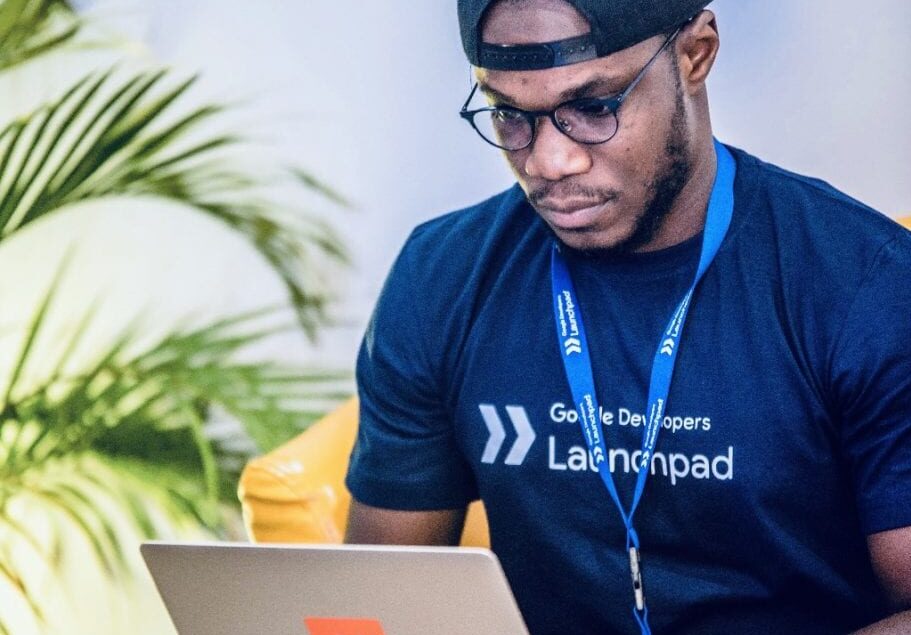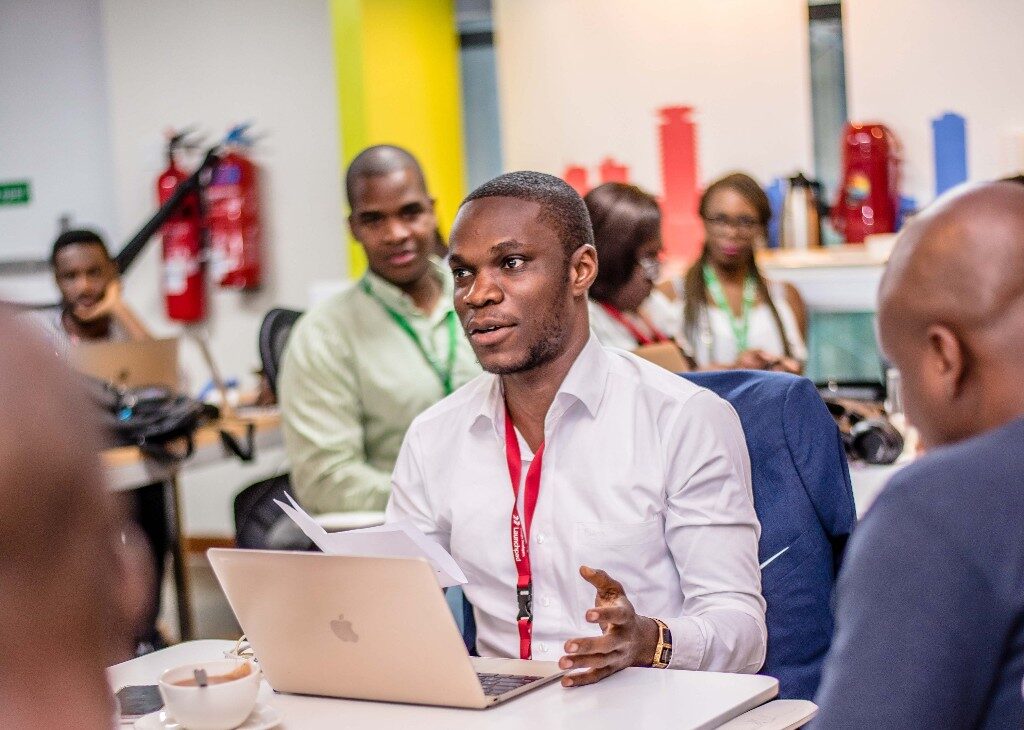The Ghanaian Entrepreneur Who Has Built Two YC-Backed Startups in Five Years: A Discussion with Jesse Ghansah

This article was written by Tage Kene-Okafor and was originally published on African based publication Techpoint.africa
In 2012, Jesse Ghansah, Prince Boakye Boampong, and Dominic Mensah began trying their hands on a new project, OMG Ghana. Three years later, the project would become a media startup, OMG Digital.
At the time, the Ghanaian startup was dubbed the “BuzzFeed of Africa” and as a founder, Ghansah co-led his team into Y Combinator (YC), participating in the accelerator with the likes of Envyl, Flutterwave, Instabug, and Paystack in 2016.
Up until 2019, Ghansah remained at OMG Digital but he has now turned his focus to Swipe Technologies, his new startup. Interestingly, the startup also made it into the YC, this time in its Winter 2020 batch.
Ghansah is one of a handful of entrepreneurs to make it into the San Francisco-based accelerator more than once. In this interview, he shares his journey so far, lessons learned, and how it feels to have started two YC-backed companies in less than five years.
I understand that you studied biochemistry at the university. Do you still practice?
To be honest, no. When I finished studying biochemistry at the Kwame Nkrumah University of Science and Technology (KNUST), I worked at a research lab as I was doing studies on wound healing in rats. I did that for a couple of months until I realized it wasn’t really for me.
I left the lab to focus on my startup full-time. But I still read a little about biochemistry and I try to keep abreast of developments especially with the new clustered regularly interspaced short palindromic repeats (CRISPR) technology in the genome and gene-editing space.
How did you make the transition into tech?
Back in college, I was doing a lot of business; I used to sell electronics, mostly mobile phones and laptops. I aggregated the sellers, tried to get some commission from them, and then built a website called Swipe Commerce in the process.
While running the business in 2013, my customers made a huge request: they wanted a way to pay in monthly installments, so I tried to build that. Imagine trying to build a startup like that in 2013 when the African payment space hadn’t matured. So I was doing payments, eCommerce, and credit scoring in one startup. I remember trying to raise money from some angel friends who thought I was insane because I was doing three difficult things.
That was when I teamed up with my OMG Digital co-founders. OMG started in 2012 as a blog and we wanted to turn it into a media company. Since I wasn’t getting any traction with Swipe, I decided to focus on OMG and work on it. That was how I sort of jumped into tech full-time.
So tell me, how did you get the idea for OMG Digital?
OMG started as a way to create and publish relatable content. At the time the Internet and social media were picking up and exploding, most of the publishers online were the traditional publishers. Consequently, there weren’t too many engaging platforms with content for millennials.
We were very familiar with the likes of BuzzFeed in the US and other social publishers so we decided to create something like that. It picked up quite well and at its peak, OMG Ghana was doing about 800,000 unique views per month.
At the time, we were building other things on the side, but it got to a point when it was only OMG that had enough traction and made revenue. So we decided to pursue that full-time and try to build a media conglomerate across the continent.
What problems did you encounter trying to build this conglomerate?
OMGVoice was one of OMG’s sub-brands, but we had other high-focused sub-brands for millennials in different content categories: pop culture, entertainment, travel, and food.
Unfortunately, the media landscape has been tough in the past few years. It’s been incredibly hard trying to monetize because most of the advertising budgets still go to traditional media, while most of the digital ad budgets are on Facebook and Google, leaving others to share the rest.
This made it a bit harder than we imagined, but in terms of reach or views, it was pretty straightforward because people in Africa love content. Though OMG is running only on revenue, it is going steady and doing well.
Just a year after launch, OMG Digital got accepted into Y Combinator. What was your experience like?
We were the first Ghanian company to get into YC and among the first five African companies; it was very exciting for us.

The whole YC experience was life-changing because, at that time, we were struggling to grow the company and needed resources because we had maxed out on what we could do as individuals.
We looked at YC because it was incredibly hard to raise money in Ghana. If you guys think raising money in Nigeria is hard, you should come to Ghana.
To be honest, with the exception of Meltwater Entrepreneurial School of Technology (MEST), I can’t give a list of angel investors or VC firms that have given cheques to companies. We applied four times before eventually getting into YC. And being a part of the accelerator allowed us to get initial funding to take OMG to the next level.
How would you describe your journey with OMG Digital?
I think one of my biggest learning opportunities was at OMG. I learned a lot about building companies, raising money, growing a team, dealing with the ups and downs of running a startup, hiring and firing, dealing with co-founder exits, trying to keep a company alive, and trying to go through an acquisition process.
I learned so much from those experiences and they’re helping me run Swipe Technologies, my new company.
Mentioning co-founder exits and acquisition, was OMG Digital struggling at some point?
We struggled around 2018. That was when the media space was in a recession and a company like Mic was valued at $160m and got sold for $5m; also, Mashable was sold for $50m after a previous valuation of $250m. So it was a tough period and I remember it was almost impossible trying to raise our Series A.
We had to change the fundamentals of the business, restructure the team, and let a lot of people go. Though it was a pretty tough period for the company, we were able to survive, but it was a very painful experience.
It was a little bittersweet for me because if I didn’t go through that OMG experience, Swipe wouldn’t exist today.
What do you mean?
In 2018 when we ran out of funding we were running on revenue. The issue with that was we dealt with big brands and agencies, most of which had long payment terms. That put a ton of pressure on our cash flow. I remember how we took personal loans, even from loan sharks at 20% a week, to meet payroll.
After dealing with that for two years, I thought there had to be an easier way for businesses or startups to get working capital in the form of credit and cash advances, and that’s what spurred me on to work on Swipe.
So I started Swipe as an invoice factoring company essentially giving companies cash advances. I started that with my network in digital agencies and after it picked up, I thought there must be a way for us to scale and make it accessible to a lot of small businesses across the continent.
You mentioned Swipe Commerce earlier. Is Swipe Technologies a revisit of the previous company?
In some ways, yes. I had done a lot of thinking about credit scoring but it was more on the consumer side so I had to rethink it from first principles in the context of businesses. But I wouldn’t lean too much on my Swipe Commerce experience because it was long ago, in 2013, and a lot of things have changed in the credit space in Africa.
I understand that Swipe has not fully launched. So, how did the startup manage to get into YC?
There are various types of launches. Sometimes people think when you launch it means you’re life, but you can have beta launches and limited release launches among others.
We’ve launched with a few pilot customers and we had some proof points to show YC that Swipe had potential.
Also, YC already trusted me as a founder. The only things they weren’t sure about were my readiness to jump into Swipe having just left OMG Digital, and my conviction to pursue Swipe. They also wanted to be sure I was ready in terms of fundraising because Swipe is a fintech lending platform that needs to consistently raise a lot of money. They wanted to know if I was ready to do all that and I proved I was ready.
In less than five years, you’ve co-founded two YC-backed startups. Do you feel any pressure to succeed with Swipe?
Well, not really. However, I think the pressure for me is that I want to build this company because I believe in the vision and I think we’re solving a big problem for companies across the continent.
I understand that founding a YC company comes with pressure because everyone is looking at you and it’s perceived that these companies have all the opportunities and access, whether in raising money or connections. The bar is a bit higher for YC startups as compared to others, but after going through this twice I don’t think I feel any pressure because people don’t care that much.
And if you’re building your company to impress people, you’re probably wasting your time and doing yourself a huge disservice. Right now, I’m building Swipe for myself, my team, and also to solve a very big problem I faced in my previous company.
Seeing you’ve played in the media and fintech, what other market segments would you love to try your hands on?
To be honest, we’re building Swipe for the long-term so unless we exit, I see myself working on Swipe for a very long time. If that happens, I’ll probably go back to building something in the consumer space as I’m still passionate about consumer media and entertainment though my experiences in that space weren’t the best. It is one of the hardest sectors you can operate in these days.
Fintech is way easier and more straightforward because you’re providing ‘x’ value and making money off a transaction fee. It’s different for media. Look at the likes of Jason who has been super creative with iROKO. He has done almost everything he can and pulled so many rabbits out of his hats but the market is still bad because we’re not just there in terms of monetising in media.
Asides consumer media, I’ll probably go back to do something in biotechnology. Something that has to do with AI and biotech. In the past year, I enrolled in Lambda School to improve my knowledge of machine learning and AI so I’d probably do something in that space as well.



